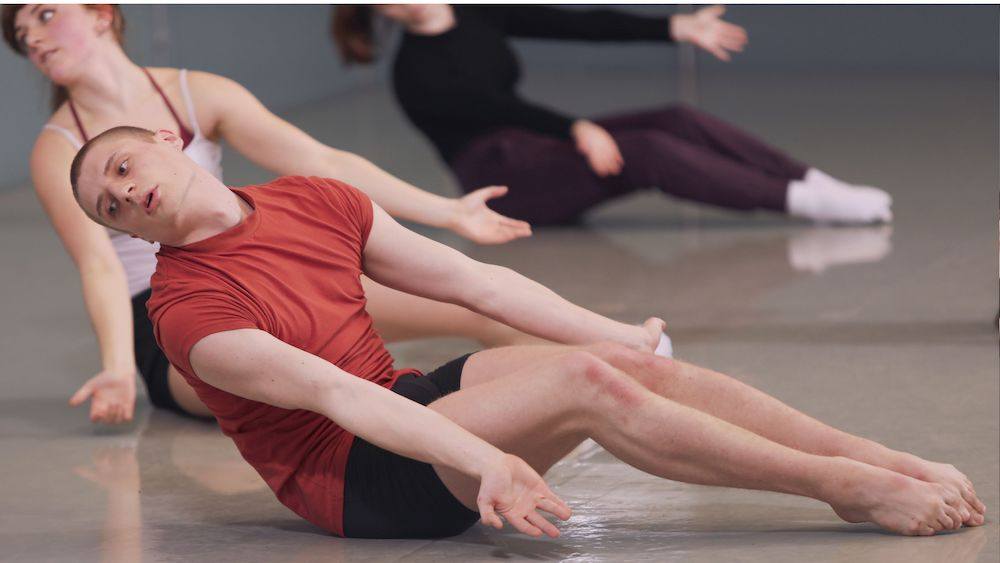Engaging first-years in the humanities is a vital initiative as universities confront declining interest in these fields of study. With only a small percentage of first-year students entering college with the intention of pursuing courses in the arts and humanities, it is essential to reimagine introductory humanities courses to captivate young minds. This initiative, led by Sean Kelly at Harvard, aims to enrich the humanities curriculum through the introduction of nine innovative introductory courses this coming fall and spring. By focusing on arts and humanities engagement, the program hopes to better resonate with students, demonstrating the intrinsic value and relevance of these disciplines. Ultimately, the goal is to inspire first-year students to embrace their educational journeys within college humanities courses, ensuring they leave with a deeper appreciation for the cultural narratives and philosophical inquiries that shape our understanding of the world.
Attracting first-year students to the realm of humanities is increasingly crucial as educational institutions respond to shrinking enrollment figures in these areas. The effort led by Sean Kelly seeks to enhance the appeal of introductory courses, transforming traditional approaches to arts and humanities engagement. By implementing a refreshed humanities curriculum that aligns with the interests and motivations of contemporary students, universities aim to cultivate a genuine appreciation for the arts and intellectual exploration. Innovative college humanities courses are designed not only to attract student interest but to reveal the profound impact that humanities have on personal and societal growth. This renewed focus on transforming the introductory experience may redefine how first-year students perceive and engage with the broader humanities landscape.
Redefining Introductory Humanities Courses
Introductory humanities courses are being reimagined to better engage first-year students and address the declining interest in arts and humanities disciplines. Recognizing that many students arrive on campus with a passing interest but often shift their focus, educators are launching new courses designed to resonate more with contemporary issues and interests. This shift reflects a broader trend in higher education, where the challenge lies in making the humanities relevant and compelling to a diverse student body.
The introduction of courses such as “Introduction to the Medical and Health Humanities” and “Culture in Context” exemplifies this rethinking, focusing on real-world applications and social relevance that hook students’ interest. By integrating modern themes with foundational concepts of the humanities, these new offerings aim to cultivate a deeper appreciation and understanding, potentially reversing the worrying trend of students abandoning their initial passion for arts and humanities.
Engaging First-Years in the Humanities
Engaging first-years in the humanities is paramount to reviving interest in these vital fields of study. With only 12 percent of incoming students expressing a commitment to the humanities, initiatives are ending the era of uninspiring introductory courses and replacing them with dynamic, thought-provoking content. The new offerings not only challenge students’ existing notions but also invite them to explore significant questions about human existence, culture, and society.
The initiative demonstrates the necessity of tailoring the humanities curriculum to students’ needs and real-world concerns. Courses that focus on topics such as migration and technology allow students to explore contemporary dilemmas through a humanistic lens, enhancing both their understanding and enjoyment of the material. This approach not only aids retention but also fosters a vibrant dialogue around the importance of the humanities in today’s world, encouraging students to see the relevance and transformative potential of their studies.
The Importance of Arts and Humanities Engagement
The importance of arts and humanities engagement cannot be overstated, especially in today’s increasingly digital and technology-driven society. Engaging students in the arts and humanities fosters critical thinking and emotional intelligence—skills that are essential in navigating complex global challenges. By emphasizing the intrinsic value of these fields, educators aim to nurture a generation that values culture, creativity, and critical inquiry.
Courses that encourage students to analyze literature, examine philosophical texts, and critique artistic endeavors play a vital role in developing their understanding of what it means to be human. They not only enhance academic prowess but also enrich personal growth, enabling students to engage meaningfully with the world around them—and reflecting the essential question of ‘why’ we study what we do.
Innovative Curriculum Design for First-Year Students
Innovative curriculum design for first-year students plays a crucial role in capturing their interest and fostering a long-lasting engagement with the humanities. The curriculum must evolve to incorporate themes that resonate with students’ experiences and challenges, ensuring that the introduction to humanities is not only informative but also inspiring. New courses like “Bob Dylan the Classic” offer unique intersections of music, culture, and literature that appeal to diverse student interests.
By recognizing the various pathways into humanities studies, colleges can craft engaging introductory courses that cater to varying levels of familiarity with the material. This inclusive approach not only broadens participation but also ignites a passion for inquiry and exploration, setting a strong foundation for students’ future academic pursuits in arts and humanities.
The Role of Faculty in Shaping Humanities Engagement
Faculty play an essential role in shaping the engagement of students with the humanities. Professors who are not only well-versed in their subject matter but also passionate about their fields can inspire students to delve deeper into the material. As seen with successful courses that have captivated large enrollments, the enthusiasm and teaching methods of faculty dramatically influence student perceptions of the humanities.
By taking a hands-on approach and actively involving students in discussions, faculty can create an engaging atmosphere that fosters a love for literature, philosophy, and the arts. This active learning environment encourages students to see the humanities not just as subjects to study, but as vital parts of their identities and future careers, further solidifying their commitment to these fields.
Fostering a Welcoming Culture in Humanities
Fostering a welcoming culture in the humanities is crucial for attracting and retaining first-year students. As the landscape of higher education evolves, it’s essential to create an environment where students feel valued and empowered to explore their interests. By promoting inclusivity and openness within the humanities curriculum, universities can help students find their voices and connect their personal narratives with broader human experiences.
Deans and faculty must work collaboratively to dismantle barriers that traditionally deterred student engagement in the humanities. Creating a culture that celebrates diversity of thought and expression encourages students to share their perspectives, ultimately enriching the academic experience for all. As institutions prioritize the intrinsic worth of the arts and humanities, they lay the groundwork for a vibrant and engaged community.
Connecting Humanities to Real-World Issues
Connecting the humanities to real-world issues is essential in demonstrating their relevance to students’ lives. Courses that highlight pertinent societal challenges—such as migration, technology, and environmental issues—serve to engage first-year students and illustrate the importance of a humanities education in understanding complex problems. This connection empowers students to consider the broader implications of their studies and encourages critical thought.
In a time where interdisciplinary approaches are increasingly key, the humanities can bridge the gap between diverse fields. By framing literature and philosophy within the context of current events, students learn to analyze and synthesize information across disciplines, making the humanities an invaluable tool for effectively engaging with the world.
Leveraging Student Interests in Course Development
Leveraging student interests in course development is a proactive strategy to enhance engagement in the humanities. As students bring diverse backgrounds and experiences into the classroom, integrating topics that resonate with their lives can create pathways for deeper inquiry. This shift not only helps in keeping students motivated but also allows them to critically reflect on their experiences while connecting them to broader cultural and historical contexts.
By involving students in the curriculum design process, educators can better understand the issues and themes that matter most to them. This can lead to the creation of courses that not only inform but challenge students, pushing them to explore new ideas and perspectives that they might not have encountered otherwise. In this way, the humanities curriculum transforms into a living dialogue that continually evolves to meet the needs of its learners.
The Impact of Introductory Courses on Student Retention
The impact of introductory courses on student retention in the humanities is profound. As many first-year students face the daunting challenge of selecting a concentration, engaging introductory courses serve as vital stepping stones, guiding them toward an informed decision. Quality introductory courses lay the groundwork for a robust understanding of the humanities, which can bolster students’ confidence and commitment to their chosen fields.
When student interest is carefully nurtured through engaging teaching and relevant course material, it makes a significant difference in the retention rates within humanities disciplines. Establishing a strong initial connection ensures that students not only remain in the humanities but increasingly see the value in pursuing careers that draw upon their studies, translating into a long-term appreciation for the arts and humanities.
Frequently Asked Questions
How can introductory humanities courses engage first-year students effectively?
Introductory humanities courses can engage first-year students by focusing on topics that resonate with their interests and experiences. By incorporating contemporary themes and diverse narratives, these courses can create relatable connections that encourage students to explore various aspects of the humanities. Additionally, utilizing creative teaching methods, such as interactive discussions, multimedia resources, and project-based assignments, helps maintain student engagement and fosters a deeper appreciation for the arts and humanities.
What initiatives are being implemented to engage first-year students in the humanities at college?
Institutions like Harvard are launching innovative initiatives to engage first-year students in the humanities. This includes introducing new courses tailored to contemporary interests, emphasizing the intrinsic value of humanities, and addressing the decline in enrollments. Such courses aim to cultivate a welcoming environment for new students, sparking their interest in the humanities curriculum and encouraging them to appreciate its relevance beyond academic requirements.
Can arts and humanities engagement impact first-year students’ academic paths?
Yes, arts and humanities engagement can significantly impact first-year students’ academic paths. Engaging with these disciplines early on can shape students’ interests and academic choices. Exposure to compelling material and thought-provoking questions in introductory humanities courses can inspire them to pursue concentrations in the humanities, as evidenced by recent initiatives aimed at increasing enrollment and retention in these fields.
What types of courses can first-year students expect in a college humanities curriculum?
First-year students can expect a diverse array of courses in a college humanities curriculum, such as foundational classes in philosophy, literature, history, and cultural studies. Some innovative offerings may include themed courses like ‘Humanity, Technology, and Creation’ or ‘Migration and Border Crossing in Film and Photography,’ designed to introduce students to core concepts while connecting them to contemporary societal issues.
Why is it important for first-year students to engage with humanities subjects?
Engaging with humanities subjects is crucial for first-year students as it fosters critical thinking, cultural awareness, and creative expression. These disciplines encourage students to explore fundamental questions about humanity, enhancing their understanding of the human experience and its complexities. Furthermore, engaging with the arts and humanities can help students articulate their thoughts and values, preparing them for diverse career paths, regardless of their chosen majors.
How do introductory humanities courses address the declining interest among first-year students?
Introductory humanities courses address the declining interest among first-year students by re-evaluating their structures and content. By incorporating trending topics, diverse literatures, and innovative teaching methods, faculty can create courses that resonate with students’ interests. Additionally, providing access to engaging experiences and discussions helps to convey the intrinsic value of the humanities, thereby encouraging students to remain in these fields.
What role do faculty play in enhancing the engagement of first-year students in humanities courses?
Faculty play a critical role in enhancing the engagement of first-year students in humanities courses by curating content that speaks to contemporary issues and personal experiences. Their commitment to creating interactive, thought-provoking environments encourages students to participate actively in discussions. Faculty can also guide students in understanding the relevance of humanities topics to real-world contexts, making the learning experience more impactful and inviting.
| Key Point | Description |
|---|---|
| Introduction of New Courses | Nine introductory courses launched to engage first-year students in the humanities. |
| Goals of the Initiative | Aims to counter declining enrollment through targeted, appealing introductory courses. |
| Course Selection | Courses designed to capture interest and address significant questions in humanities. |
| Success Stories | Examples of popular courses in philosophy and other fields that attract high enrollment. |
| The Value of Humanities | Focus on the intrinsic value of humanities beyond practical applications. |
Summary
Engaging first-years in the humanities is crucial for fostering a rich intellectual environment within academia. The recent initiative led by Dean Sean Kelly at Harvard demonstrates the potential to transform introductory courses into compelling gateways for new students. By rethinking course materials and layouts, the program aims to captivate students’ interests from the start, ensuring that they see the humanities not just as a subject to study, but as an essential lens for understanding the world. This initiative highlights the intrinsic value of humanities, encouraging students to explore profound questions about humanity while building their unique academic paths.


